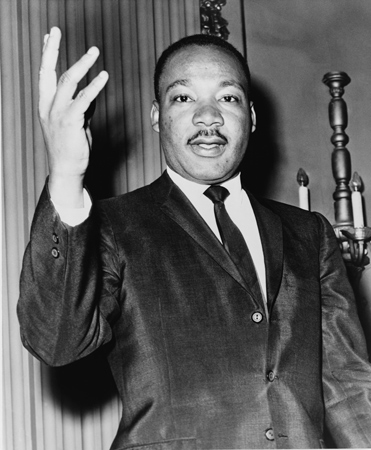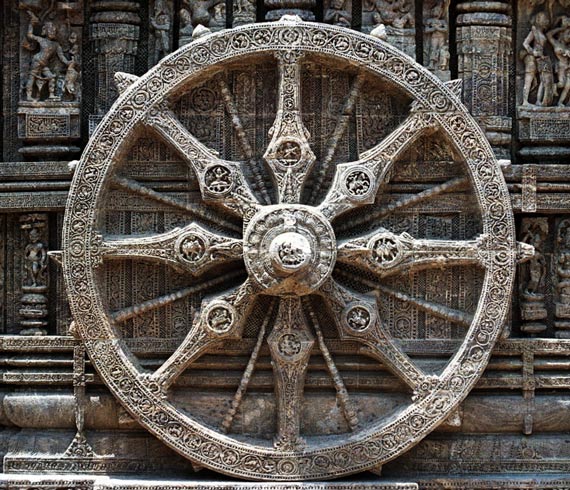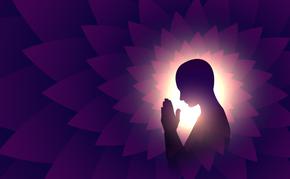The views expressed in our content reflect individual perspectives and do not represent the authoritative views of the Baha'i Faith.
The first principle of value that we need to rediscover is this: that all reality hinges on moral foundations. In other words, that this is a moral universe, and that there are moral laws of the universe just as abiding as the physical laws. – Reverend Martin Luther King, Jr., A Knock at Midnight.

Almost everyone has a moral code — our ethical principles, a set of inner laws and guidelines each of us tries to follow. The term “morality” comes from the Latin word moralitas, meaning “character” or “proper behavior”; and describes how we differentiate our intentions, decisions, and actions between right and wrong. Strikingly, every culture from every period of human existence has a moral code.
Two perceptive anthropologists who studied this phenomenon recently – Christopher Peterson and Martin Seligman, the authors of Characters, Strengths and Virtues – surveyed different cultures and regions across history and found that a common set of essential virtues exists in them all. Those universal human virtues include justice, courage, wisdom and learning, a sense of humanity toward others, temperance and transcendence, kindness, love and sociability.
Baha’is believe that humanity has learned these core human virtues from religion.
The Golden Rule, common across all major Faiths, forms the foundation of all morality with its ethic of reciprocity and love for others. In ancient Egypt the moral code called Ma’at guided human interaction. From the Hindu Scriptures, the yamas and the niyama underpin all moral acts. In Buddhist cultures the Buddha’s Five Precepts and the Noble Eightfold Path both form the core moral compass. In the Judeo-Christian cultures, the Ten Commandments serve as the basis for morality; and in Islam the laws of the Qu’ran determine moral actions. For Baha’is, peace and the oneness of humanity act as the foundation of all morality and virtues.
One of the primary, basic purposes of religion involves instilling a sense of collective moral purpose in humanity. Every great Faith brings a moral code, a set of laws meant to guide us away from what can injure our own souls or harm others. And for some reason, women seem to adopt and adhere to these divinely-delivered moral codes more readily than men.

Research shows that women typically understand moral codes, and accept and practice them more consistently than men — which may explain why men occupy 80% of the world’s prison cells. While socialization and education account for some of that terrible percentage, it also indicates that men need a moral code they can adopt, believe in and follow. A sense of morality, conscientiousness and responsibility helps promote self-control and self-discipline, sparing men from inner conflicts and pain – and the addiction, injury, incarceration and death – that so many males without a moral code force themselves to endure. A recent Scientific American review of gender and morality research summarized the masculine moral challenge:
One of the most notable risk factors for ethical laxity: Being a man. A number of studies demonstrate that men have lower moral standards than women, at least in competitive contexts. For example, men are more likely than women to minimize the consequences of moral misconduct, to adopt ethically questionable tactics in strategic endeavors, and to engage in greater deceit. This pattern is particularly pronounced in arenas in which success has (at least historically) been viewed as a sign of male vigor and competence, and where loss signifies weakness, impotence, or cowardice…. – When Men Are Less Moral Than Women, by Cindi May, Scientific American, 6/19/2012.
A man must have a moral code, the scientists and the religions both tell us. The Baha’i teachings gently suggest that we all need a moral guide in this life:
…assuredly the divine teachings of religion are above all other sources of instruction and development to man. Religion confers upon man eternal life and guides his footsteps in the world of morality. It opens the doors of unending happiness and bestows everlasting honor upon the human kingdom. – Abdu’l-Baha, Baha’i World Faith, p. 270.
Of course, not every man or every woman lacks moral fortitude – most people have a code of morality they try to follow. And we all sometimes fail to live up to our internal moral code – after all, we’re fallible human beings. But seeking out an authentic, honorable and rational moral code we can believe in, commit to and act on forms the foundation of every good life. No one could trust a moral code that allows hypocrisy or condones acts that result in a loss of integrity. Ultimately, Baha’is believe that each man has the responsibility and the duty to search for and determine his own moral code:
This is the day when dogmas must be sacrificed in our search for truth. We must leave behind all save what is necessary for the needs of today, nor attach ourselves to any form or ritual which is in opposition to moral evolution. Search untiringly for truth and reiterate the teachings which harmonize with the crying needs of the hour. – Abdu’l-Baha, Divine Philosophy, pp. 67-68.

















Comments
Sign in or create an account
Continue with Facebookor